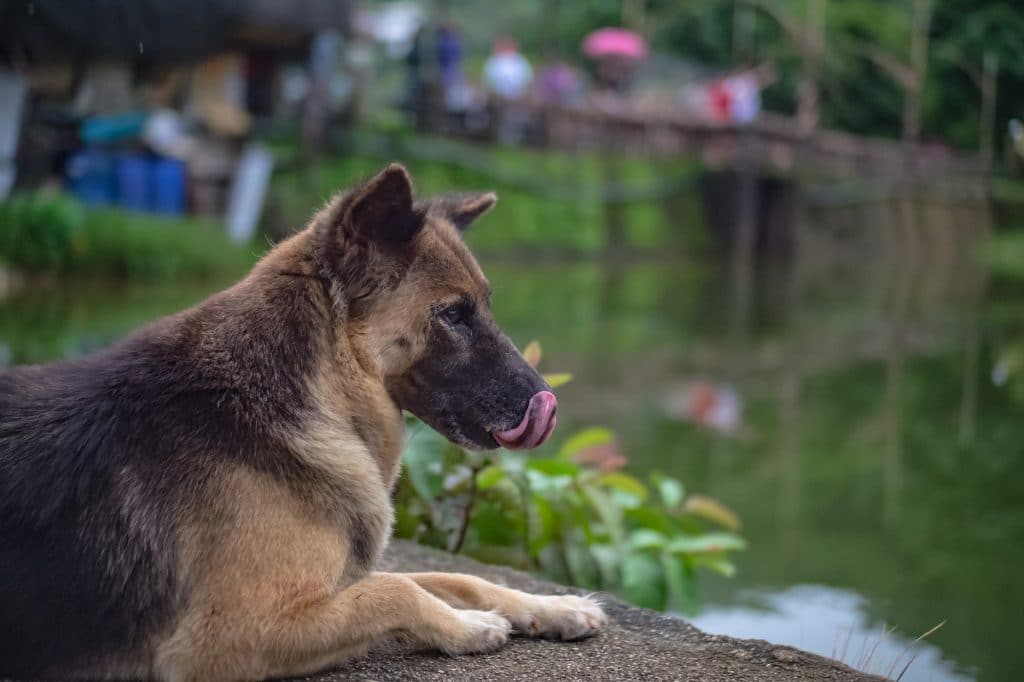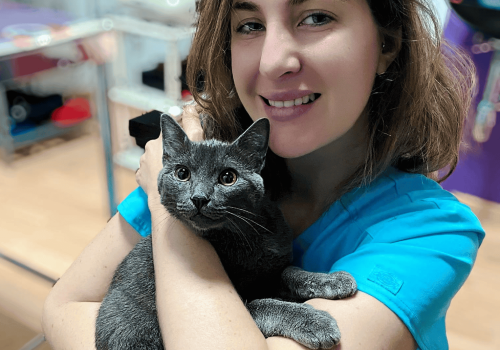If you suddenly surprise your dog feasting... on poop, you'll usually think: “What's wrong with him? Why are you suddenly eating feces?” Is about coprophagia which can target both its own feces and those of other animals.
There is only one type of coprophagy that is considered normal and that is that of females ingesting their puppies' feces. If this is not the case, the factors that can trigger the ingestion of feces are multiple. Unfortunately, although it is a relatively common behavior, there has still been little research on it.
Anyway, the most probable reasons why a dog can eat feces are: inadequate diet, medical problem or behavioral disorder.
Nutritional problems
Deficiencies in vitamins and minerals, such as thiamine or cobalamin deficiency. You can only solve this with veterinary tests and a modification of their diet. At Animal Herbalist we can help you with nutritional consultation by integrative veterinarians, and with organic wet food and books on the BARF diet.
Medical problems
Coprophagy can be a clue to ailments such as exocrine pancreatic insufficiency, intestinal malabsorption syndrome, parasitosis such as coccidiosis, diabetes mellitus, etc. Again, a visit to the integrative veterinarian as soon as possible is the best way to have an accurate diagnosis.
behavioral problems
The emotional causes of coprophagy can also be diverse. An ethologist is the person who could best help you determine what causes your dog to eat its own feces or those of other animals. However, in many cases this behavior is due to a need to explore caused by little stimulation or stress.
It can also be caused by hunger or because the feces of other animals are very palatable (for example, horse feces).
And on some occasions, they can be a wake-up call, asking you to pay more attention to them. Analyze if you are giving it the necessary time and attention. Think about whether you now spend less time with him and, above all, if you play with him less or if he exercises less.
If, on the other hand, it is a behavior that they have been doing since you adopted or bought them, Most likely, it was already done at the breeder, pet store or kennel. where it comes from. In these places, animals are generally confined in small spaces for a long time and the lack of stimulation represents great emotional pressure. One way to relieve anxiety is to play with your own feces and then eat it. This behavior may also be due to the fact that dogs and cats distinguish dirty areas from clean areas, so They ingest fecal material to keep their habitat clean.

-
If your dog eats other people's feces: In addition to going to the vet to rule out that it is due to an illness, Try to adequately cover your nutritional needs, opting for a natural or prepared diet, but moist and based on organic ingredients. The best is the BARF or lightly cooked diet, and if not, quality packaged food with organic certification. Many people are unaware that dry food from the most commercial brands (including the most well-known feeds) incorporate odor enhancers. Not only are they toxic to the body in the long run, but they are addictive because they have very strong aromas. Thus, our animals prefer intense aromas… and that includes poop. Our food proposal for Dogs y cats. And if you want to learn how to prepare the BARF diet, there are creative writing and, of course, nutritional consultation.
-
If your dog eats his own feces:
-
Make your stools less palatable adding to your food ssupplements that contain enzymes such as bromelain (from pineapple) or papain (from papaya). Our proposal is Koprostop, a natural powder remedy that contains dried swamp, spirulina, micronized algae, lapacho bark, papaya concentrates and hemoglobin. This powder mixture provides powerful antioxidants, vitamins, minerals, chlorophyll and fiber. AND Dolfos Cayenne, herbal remedy that also contains vitamins, minerals, digestive enzymes and probiotics. It is also useful as a deterrent solution, if it is a behavioral problem. Coprovet, based on yucca, pineapple and mint.
Another option is to add a nutritional supplement with digestive enzymes such as EnziVet, which contains alpha-amylase, lipase, protease, beta-xylase and beta-glucanase. -
It reduces the attractiveness of your stool by changing its consistency. Most dogs with this problem prefer to eat compact stools. That's why, add fiber to your food It can make the droppings less formed and less appetizing. In this case, we suggest adding a little organic psyllium to your food.
-
If it is a puppy, clean the space where he has defecated as soon as possible. If you get lost and he has eaten his feces, DO NOT scold him. Sometimes puppies ingest feces out of curiosity and other times because they suffer from digestive problems and are looking for nutrients. This is the case of soft feces, which preserve some nutrients as they have not been digested and when they are detected, the animals ingest them to digest them completely.
-
Reward behaviors. Teach your dog that when he finishes defecating, if he comes to you, he will get a treat. Or reward him when he walks past the feces and ignores it.
-
- Environmental enrichment. Whether your dog eats his own feces or those of other animals, If you suspect that boredom and lack of stimulation may be the causes, act accordingly and review, for example, the number and duration of walks (we, for example, walk four times a day with our dogs, making 2 short outings). and 2 longer), dedicate at least a little time each day to playing with your dog, either outside or at home with olfactory toys... Remember that it is wonderful to share life with animals, enjoy that gift!





